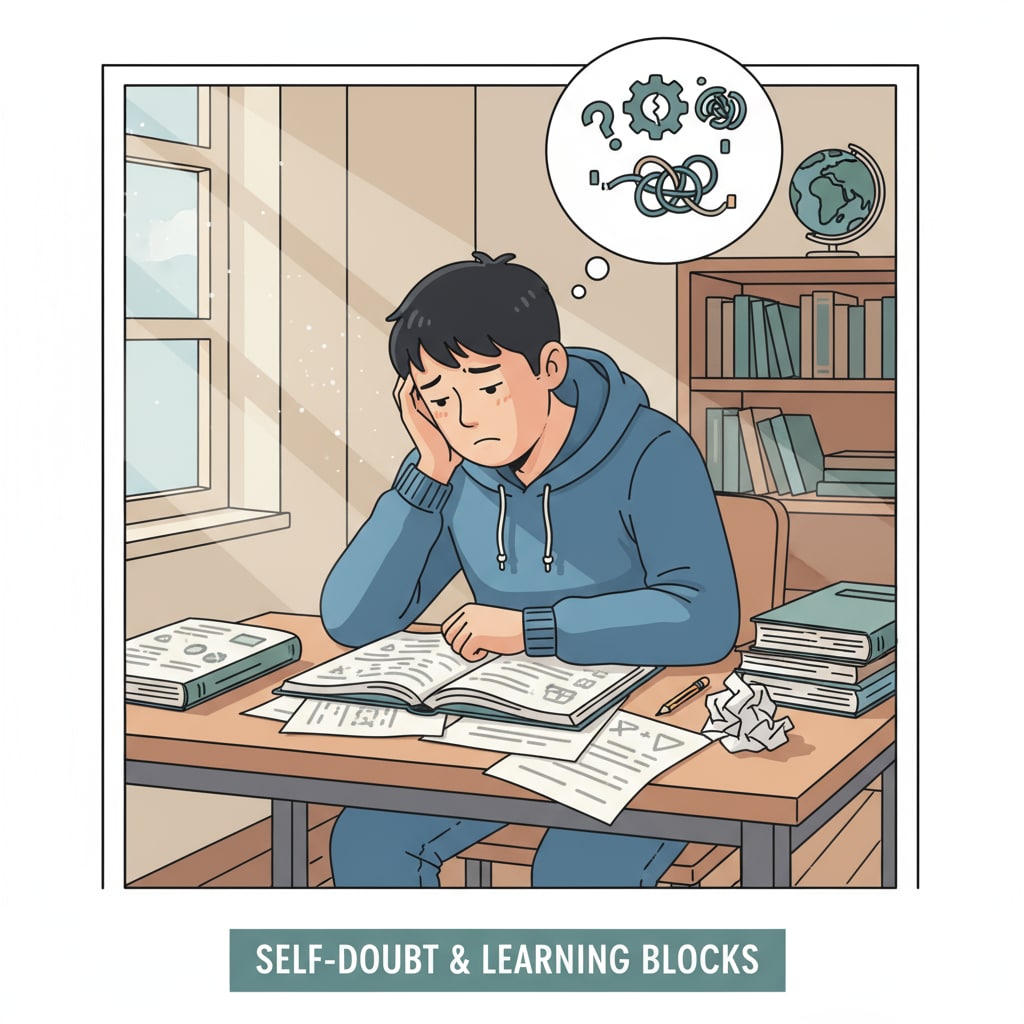Learning anxiety, self-doubt, and learning difficulties can significantly impact a teenager’s educational journey. For 17-year-old adolescents, these challenges can be particularly overwhelming. In this article, we will explore the reasons behind these issues and provide effective strategies to overcome them.

The Origins of Self-Doubt in Learning
Self-doubt in learning often stems from various factors. One common cause is high expectations, whether from parents, teachers, or oneself. For example, if a student constantly feels pressured to achieve top grades, they may start to doubt their abilities when they don’t meet those expectations. According to APA’s research on child and teen mental health, academic pressure is a leading cause of self-doubt among teenagers. Additionally, past academic failures can also leave a lasting impact, making students hesitant to take on new challenges.

The Impact of Learning Anxiety
Learning anxiety can have a detrimental effect on a teen’s performance. It may lead to procrastination, as students try to avoid the source of their anxiety. Moreover, it can affect concentration, making it difficult for them to focus during lessons or while studying. As a result, their academic progress may be hindered. A study by NCBI on the impact of anxiety on learning shows that anxious students often struggle to retain information.
To help teenagers overcome these challenges, parents and educators play crucial roles. Firstly, creating a supportive environment is essential. This means offering encouragement rather than criticism, and helping students understand that failure is a part of the learning process. Secondly, teaching effective study skills can boost confidence. For example, time management techniques and note-taking strategies can make learning more manageable. Finally, promoting a healthy lifestyle, including proper sleep, exercise, and a balanced diet, can also improve mental well-being.
Readability guidance: We’ve used short paragraphs and presented key points clearly. Each section provides useful information. We’ve also incorporated external links to reliable sources for further exploration. Transition words like “moreover,” “additionally,” and “as a result” have been used to enhance the flow of the article.


